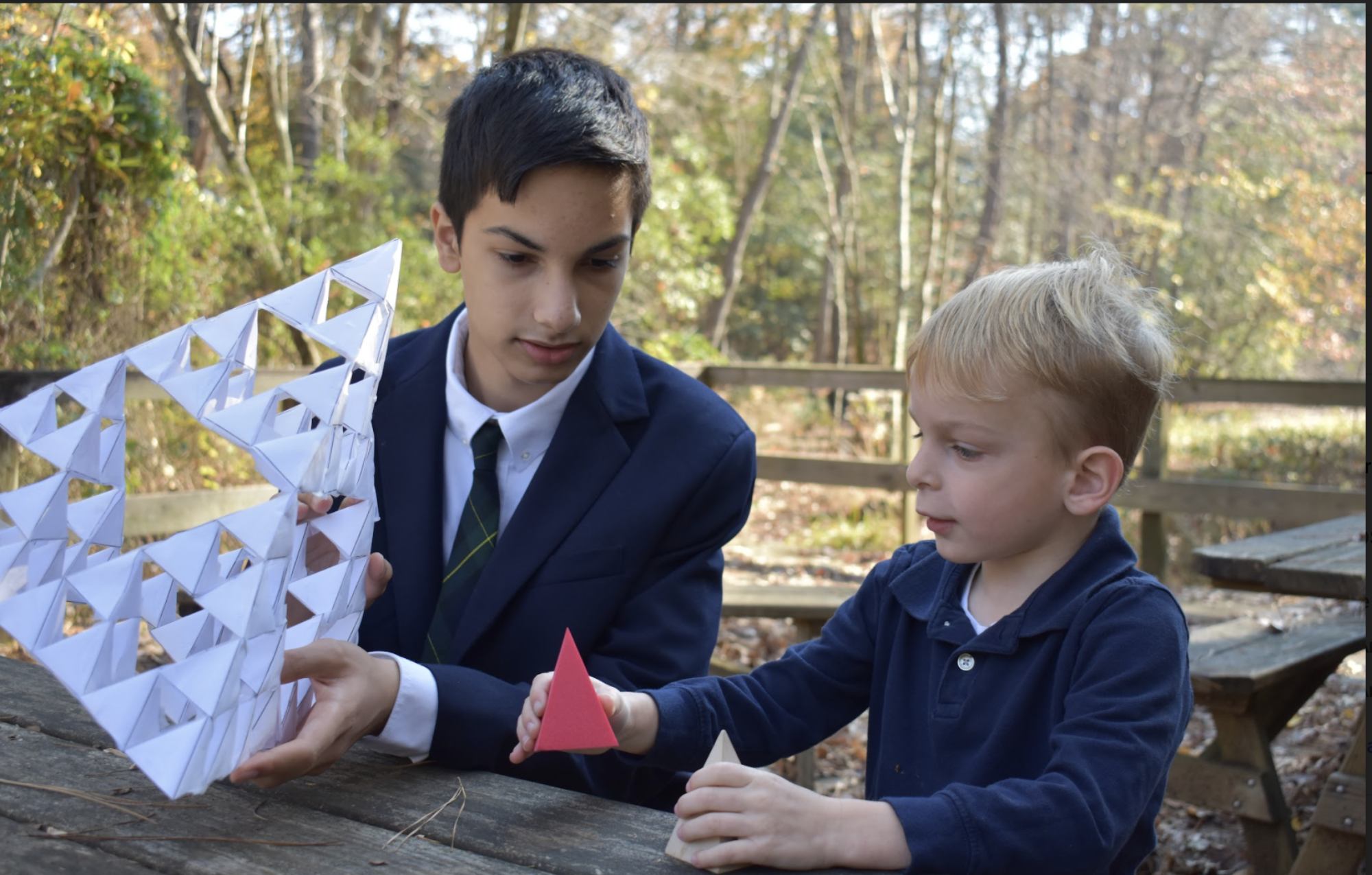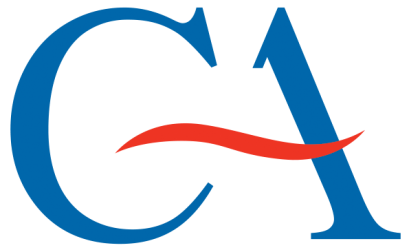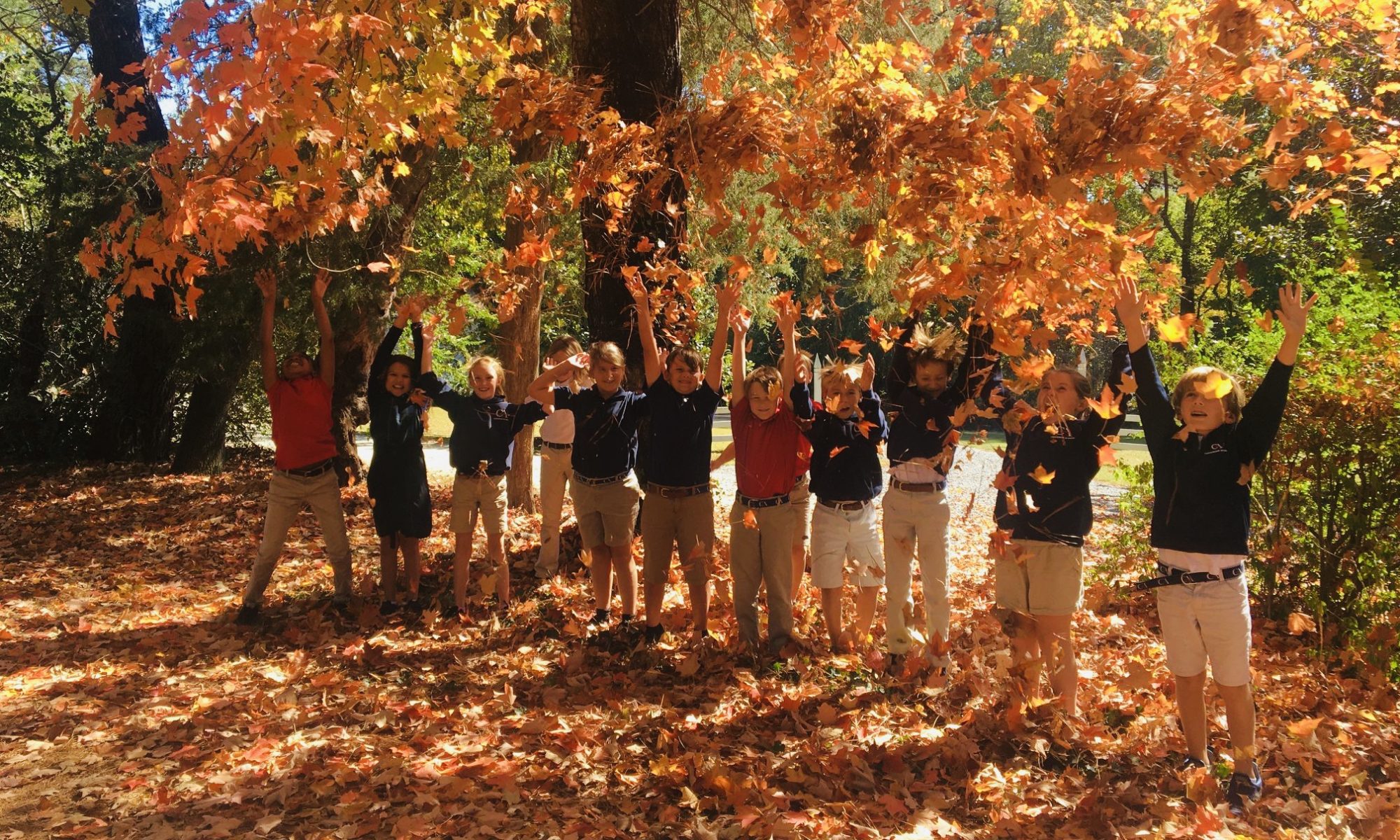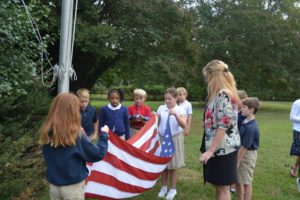In Lower School at Chesapeake Academy, kindergarten – fourth grade students become adept at working in a variety of settings, whether independently, collaboratively with others, or working individually with the teacher.
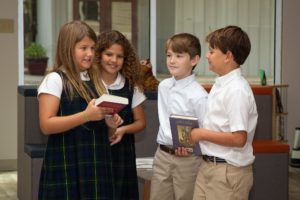
Teachers encourage students to understand themselves as learners as teachers continually assess students progress. Utilizing differentiated instruction, teachers design integrated units that allow students to build knowledge and skills most effectively. Lower School students are challenged to fully engage with materials, teachers, classmates, and students of all ages in a variety of instructional experiences. Teachers and curriculum make learning relevant as students apply content knowledge and skills to a variety of real world tasks, including STEAM challenges to problem based learning. Students learn how to choose and use materials that support their learning, whether those are library resources, online websites, or multimedia computer programs.
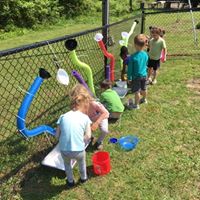 The Lower School experience at Chesapeake Academy is one in which teachers truly know and understand each student as a person and as a learner. Teachers provide both a nurturing and challenging atmosphere where students develop the confidence to attempt and master new skills. Teachers and students work with the curriculum in ways that allow students to not just acquire knowledge, but also to apply information to new situations and create higher levels of understanding. Students have individual progress goals and also pursue topics of their own interest, presenting their research and findings to their peers. Field trips and community service projects enrich the students’ experiences.
The Lower School experience at Chesapeake Academy is one in which teachers truly know and understand each student as a person and as a learner. Teachers provide both a nurturing and challenging atmosphere where students develop the confidence to attempt and master new skills. Teachers and students work with the curriculum in ways that allow students to not just acquire knowledge, but also to apply information to new situations and create higher levels of understanding. Students have individual progress goals and also pursue topics of their own interest, presenting their research and findings to their peers. Field trips and community service projects enrich the students’ experiences.
Lower School Curriculum
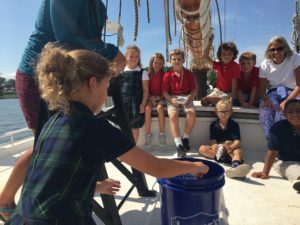 The academic curriculum in Lower School builds on the language acquisition skills from Early Childhood and expands children’s abilities to think critically–to organize, relate, and analyze information. The Language Arts program emphasizes effective reading, writing, speaking and listening skills as students move from “learning to read” to “reading to learn.” The math curriculum focuses on seeing the patterns and “big picture” concepts while developing computation skills within the context of problem solving, reasoning, and application. Students move from hands on work with manipulatives to more abstract concepts. They understand mathematical thinking and are able to apply it to new
The academic curriculum in Lower School builds on the language acquisition skills from Early Childhood and expands children’s abilities to think critically–to organize, relate, and analyze information. The Language Arts program emphasizes effective reading, writing, speaking and listening skills as students move from “learning to read” to “reading to learn.” The math curriculum focuses on seeing the patterns and “big picture” concepts while developing computation skills within the context of problem solving, reasoning, and application. Students move from hands on work with manipulatives to more abstract concepts. They understand mathematical thinking and are able to apply it to new 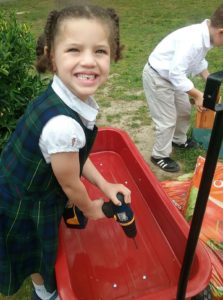 situations.
situations.
The science curriculum is designed for students to develop methods of observation, classification, and research, while increasing reasoning ability. Students work with scientific instruments as they test theories, learn the language of science, and communicate about the world around them. The study of science at CA gives our students a greater understanding of the world in which we live and the relationships among the universe’s components. The social studies curriculum provides students with a sense of who they are and their relation to the past, present, and future. Students understand the interconnection of peoples, communities, cultures, and historical events. As an independent school, Chesapeake Academy is able to infuse academic instruction with a social and ethical curriculum aimed at developing independent, competent students who demonstrate integrity in their actions and interpersonal relationships.
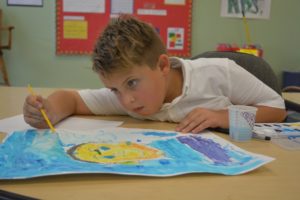
In addition to the academic content in Lower School, the Chesapeake Academy experience is enriched by the integration of Spanish, art, performance, music, physical education, library, and technology instruction into daily life. In Spanish classes twice a week, students learn basic vocabulary and how to apply it to speech and interpersonal conversation while also learning about the culture present in Spanish nations.
Weekly art, performance, and music classes allow students to express concepts in unique ways and to perform and present their work for larger audiences in assemblies and at events such as Grandparents’ and Grandfriends’ Day in the fall, the Holiday Program in the winter, and ARTStravaganza in the spring. Through PE classes 3 times a week, students develop physical fitness, self-confidence, and a love of games and athletics. Weekly library classes teach students to use resources effectively, while encouraging students to read for pleasure. Third through fifth grade students learn principles of economics and financial literacy through participation in Mini-Economies at Virginia Commonwealth University. Students use technology daily to increase their keyboarding skills, research skills, and abilities to use multimedia effectively.
4th-5th Grade Bridge to the Middle School
Our unique 4th and 5th grade program is designed to help students successfully “bridge” the transition from Lower School to Middle School over a two year period of time. These students work with a core group of teachers for the academic curriculum to ease the transition into Middle School. The students develop the time management skills and individual responsibility needed to perform well with the increased expectations in the Middle School. Fourth graders serve as safety patrols for the Lower School, learning leadership skills and responsibility. Fifth graders are fully integrated in the life of the Middle School, participating in social activities and Student Council responsibilities.
Activity Period
Each marking period, faculty members and community volunteers offer a selection of clubs and learning opportunities for our 3rd-8th graders. Students choose among a variety, including, but not limited to drama, photography, sculpture, knitting, cooking, STEAM challenges, bicycling, and community service. Students make different selections each marking period so that they can try new things throughout the year.
Technology and Innovation
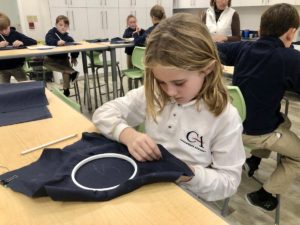
Students at Chesapeake Academy develop their technology skills while engaged in instructional activities on a regular basis. Students in the lower school have access to MacBooks and iPads that are integrated into their classrooms starting in kindergarten and can be used across the school day, whether in the academic classroom, the art room, or even outside. From using hands-on, visual SMARTboard software to mind-mapping software to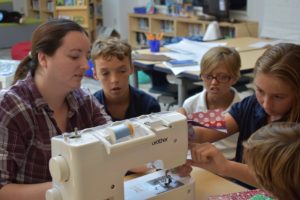 collaborative online tools for publishing, discussing, and evaluating work, students and teachers use technology to extend learning across the curriculum. In addition to learning how to use multimedia programs and online websites, students also learn to use technology safely and ethically in our connected world.
collaborative online tools for publishing, discussing, and evaluating work, students and teachers use technology to extend learning across the curriculum. In addition to learning how to use multimedia programs and online websites, students also learn to use technology safely and ethically in our connected world.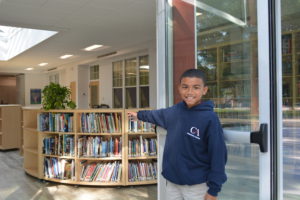
With the new Arts & Innovation Hub, Chesapeake Academy students combine hard technology skills with design and self-expression skills. Through five selected integrated skills (video/audio engineering, CAD modeling and 3D design, basic construction, robotics and computer coding, and textile arts), students have opportunities to create new ideas and products that support academic work across disciplines.
